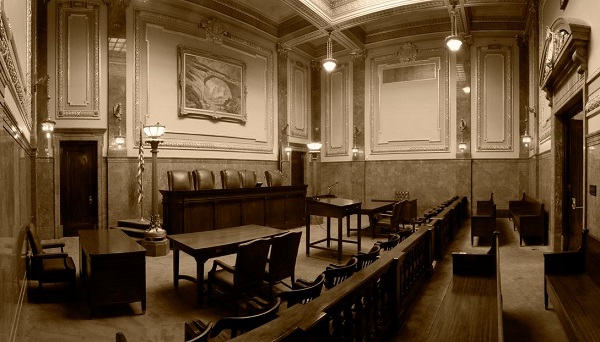Post-conviction Strategies After a Lower Court Conviction

In the realm of law, few situations are as challenging and pivotal as facing a conviction in a lower court. Yet, it’s imperative to understand that the legal journey doesn’t terminate with a lower court’s judgment. A comprehensive post-conviction process exists, offering individuals the opportunity to seek redress and potentially reverse an adverse verdict.
In this article, we will delve into the intricate steps that follow a lower court conviction from a lawyer’s perspective, the pivotal role of appeal lawyers, the methods to locate a skilled appellate attorney nearby, and underscore the expertise offered by Brownstone Appeal Lawyers, a reputable resource for individuals requiring post-conviction legal assistance.
Understanding Your Conviction
When faced with a conviction in a lower court, the underlying step from a legal point of view is to acquire an exhaustive comprehension of the verdict. This involves not just distinguishing the particular charges for which the conviction was given over yet in addition fathoming the punishments forced and the exact legal underpinnings whereupon the conviction is predicated. This essential understanding is fundamental for the essential moves that continue in the legal process.
Consulting with Appeal lawyers in Atlanta
After a conviction, the consistent game-plan is to look for counsel from appeal lawyers. These legal professionals are experts in criminal appeals tries and are exceptional to direct people through the tangled legal territory that results.
Appeal lawyers have a significant information on the complexities intrinsic to the appellate process, offering master experiences into the possibility of chasing after an appeal, a writ of habeas corpus, or other post-conviction cures.
The Significance of an Appellate Attorney Nearby
For those pondering, “Where might I at any point track down an appellate attorney near me?” an appellate attorney is a key part in the process after verdict by the lower court. These legal professionals represent considerable authority in the domain of appellate law and are committed to examining lower court decisions for legal errors, procedural wrongdoing, or premature deliveries of justice that might have happened during the trial.
Grounds for Appellate Review
From a lawyer’s perspective, the initiation of the after verdict process commences with a rigorous evaluation of the grounds upon which an appeal may be predicated. Common bases for an appeal encompass errors or irregularities that transpired during the trial, instances of inadequate legal representation, or the emergence of newfound evidence that could potentially exert a transformative impact on the case’s outcome.
Legal practitioners meticulously pore over trial transcripts and evidentiary records to unearth compelling legal issues that warrant appellate scrutiny.

Preparing the Appellate Strategy
Once valid grounds for appeal have been unearthed, the attorney embarks on the task of meticulously crafting an appellate strategy. This involves the painstaking drafting of legal briefs that expound upon the legal arguments, substantive errors.
It can also invlove procedural irregularities meriting examination by a higher court. These appellate briefs must be meticulously structured and buttressed by sound legal precedents to fortify the case’s prospects on appeal.
Filing the Appellate Petition
Following the preparation of the appellate documents, the next crucial step is their expeditious filing with the appropriate appellate court. From a legal standpoint, attorneys are entrusted with the responsibility of ensuring that all requisite paperwork is submitted within statutory timelines and in strict compliance with the procedural rules and regulations governing appellate filings.
The Appellate Process
The appellate process, as viewed through the eyes of a lawyer, transpires before a higher court where appellate judges review the lower court’s decision. Diverging from a trial, the appellate stage does not involve the introduction of fresh witnesses or new evidentiary matter. Instead, it centers on the precise legal arguments enunciated in the appellate briefs submitted by both parties.
Oral Arguments
In certain cases, appellate courts may afford the opportunity for oral arguments. This phase permits attorneys to present their case in a live setting, providing a platform to elucidate legal points, address the inquiries of the appellate judges, and advocate for their client’s cause with vigor and precision.
The Appellate Decision
Subsequent to a thorough review of the arguments and evidence proffered, the appellate court will deliver its decision. The outcome may entail the affirmation of the lower court’s conviction, its reversal, or the issuance of an order for a new trial. The ultimate determination is inexorably linked to the strength of the legal arguments presented and the appellate court’s assessment of the lower court’s proceedings.
Post-Appellate Options
Even in cases where the appellate court upholds the lower court’s conviction, an array of post-appellate options may yet remain. From a legal perspective, these avenues, such as petitions for certiorari to a higher appellate court or applications to the Supreme Court, demand thorough examination to determine their viability in accordance with the unique dynamics of the case at hand.
Final Word
Confronting a conviction in a lower court presents an intricate and formidable legal challenge. However, it’s crucial to recognize that the legal voyage continues through the criminal appeals process. To successfully navigate this intricate journey, it is indispensable to seek the counsel of seasoned appeal lawyers in Atlanta who specialize in criminal case advocacy.
These legal practitioners bring to bear their acumen, experience, and strategic prowess, enhancing the prospects of achieving a favorable outcome. For those in search of exceptional legal assistance in the realm of post-conviction matters, consider Brownstone Appeal Lawyers as a preeminent resource that exemplifies unwavering commitment to justice.
